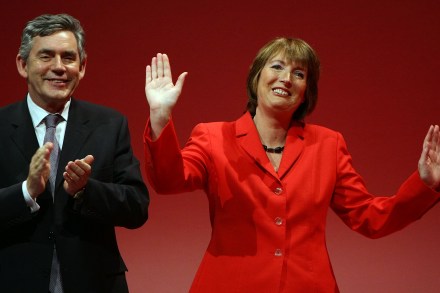Brown’s take on Harman
The rest of Labour seems sure that Harriet Harman is on manoeuvres, but Gordon Brown was adamant yesterday that there’s no truth to the Westminster gossip. He’s lying, I thought; it’s not as though he’d admit his deputy is undermining his position. But then this in today’s Telegraph: According to one key adviser, [Brown] does not believe reports that [Harman] is jockeying for position – not because he believes she is devoted to his cause, but because “he just thinks it’s preposterous anyone could even consider Harriet could lead anything”. Whether it’s true or not, the Harman story now has an irresistible momentum. Quotes like that above, while designed to
















